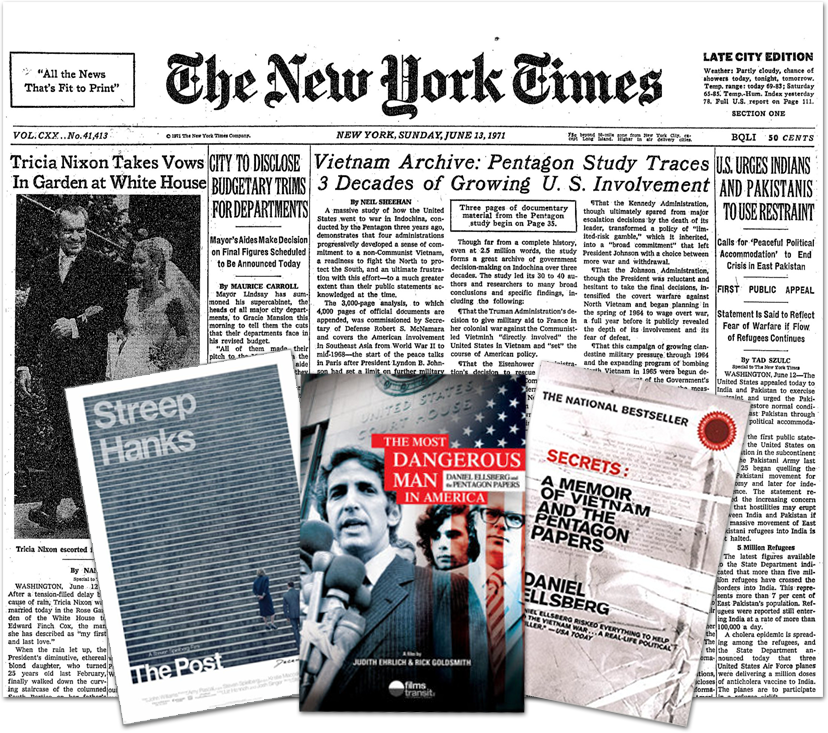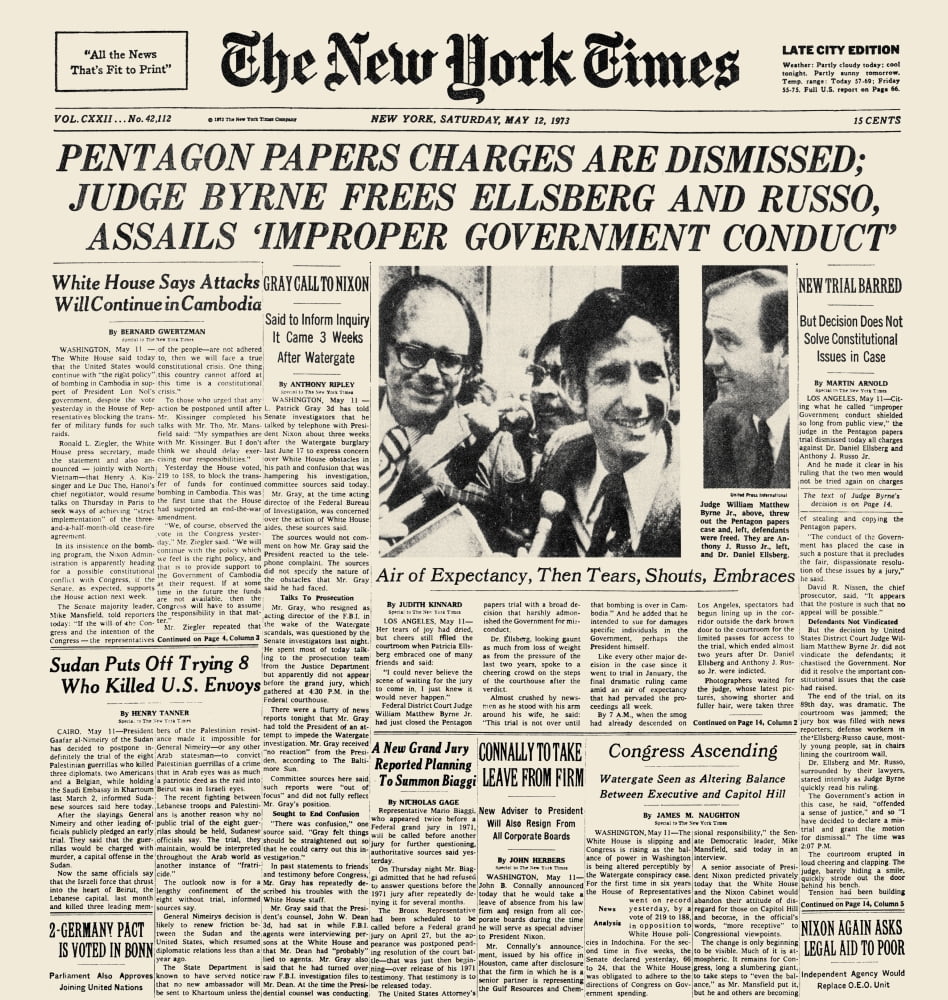
When the official government version was published in September, only 500 copies sold. Despite selling a million copies, the Times book version of the study generated little additional debate about the Vietnam War. With the injunctions lifted, the newspapers completed their series. Justice Department considered criminal charges against press Instead the majority simply voted for a brief per curiam opinion stating that the government had failed to meet the “heavy burden” of proof required for prior restraints, accompanied by separate opinions by each of the nine justices. Because the Supreme Court announced its 6-3 decision allowing publication only two weeks after the case had been filed, there was no time to develop a consensus position. The judges in both cases ruled against the government’s request for a temporary restraining order, but in each case the ruling was stayed to permit an appeal.Īfter the two circuit courts reached conflicting results, the Supreme Court agreed to hear the case immediately rather than waiting for its October term.
#PENTAGON PAPERS SERIES#
Ellsberg then gave a copy to the Washington Post, which began a similar series on June 18, resulting in a second lawsuit. district court seeking an injunction to halt further publication after the newspaper declined a request to do so voluntarily. The Nixon administration filed a lawsuit in U.S. (AP Photo, used with permission from The Associated Press.) They eventually prevailed at the Supreme Court, which said the government did not meet the "heavy burden" of proof required for prior restraint of the press. Court of Appeals extended the ban against publishing the secret documents for one day. District Court in Washington after getting the go-ahead to print the Pentagon Papers on Vietnam. In this Jfile photo, Katharine Graham, left, publisher of The Washington Post, and Ben Bradlee, executive editor of The Washington Post, leave U.S.

Nixon administration sought injunction to prevent publicationĪfter a lengthy examination of the material and fierce internal debate, the Times decided to publish the study as a nine-part series beginning June 13. When efforts to do this through official channels failed, in March 1971 he turned over a copy to Neil Sheehan of the New York Times, holding back four volumes concerning negotiations in order not to interfere with ongoing efforts. Hoping that if members of the public learned what the study revealed, they would have a similar conversion, he began a campaign to make the papers public. What made the Pentagon Papers the center of national attention was the obsession of one of the authors, Daniel Ellsberg.Īfter he had spent two years working alongside the military in Vietnam, Ellsberg’s support for the war turned to staunch opposition. Johnson used parts in writing his memoirs, neither McNamara nor Nixon’s secretary of defense Melvin Laird read them. Fifteen copies of the 47-volume top secret study were distributed. Work continued after McNamara was replaced by Clark Clifford and ended shortly after President Richard M. The authors of the papers were granted access to numerous classified documents but were not permitted personal interviews. Pentagon Papers leaked to press by author who opposed the Vietnam War United States (1971), regarding censorship and freedom of the press. They became the subject of a major Supreme Court case, New York Times Co.

They were commissioned in June 1967 by Secretary of Defense Robert McNamara after he had developed doubts about the wisdom of that war. Decision-Making in Vietnam, 1945–68,” the Pentagon Papers are a study of the origins and development of the Vietnam War. (AP Photo/Susan Walsh, republished with permission from The Associated Press.) The New York Times appealed to the Supreme Court, which, in a 6-3 decision, dissolved the restraining order and allowed publication. After the newspaper began publishing the so-called "Pentagon Papers," the Nixon administration obtained a restraining order to stop them.

In 1971, Ellsberg gave the New York Times copies of a secret government report on American involvement in the Vietnam War. Vietnam-era whistleblower Daniel Ellsberg speaks at the National Press Club in Washington in 2010.


 0 kommentar(er)
0 kommentar(er)
